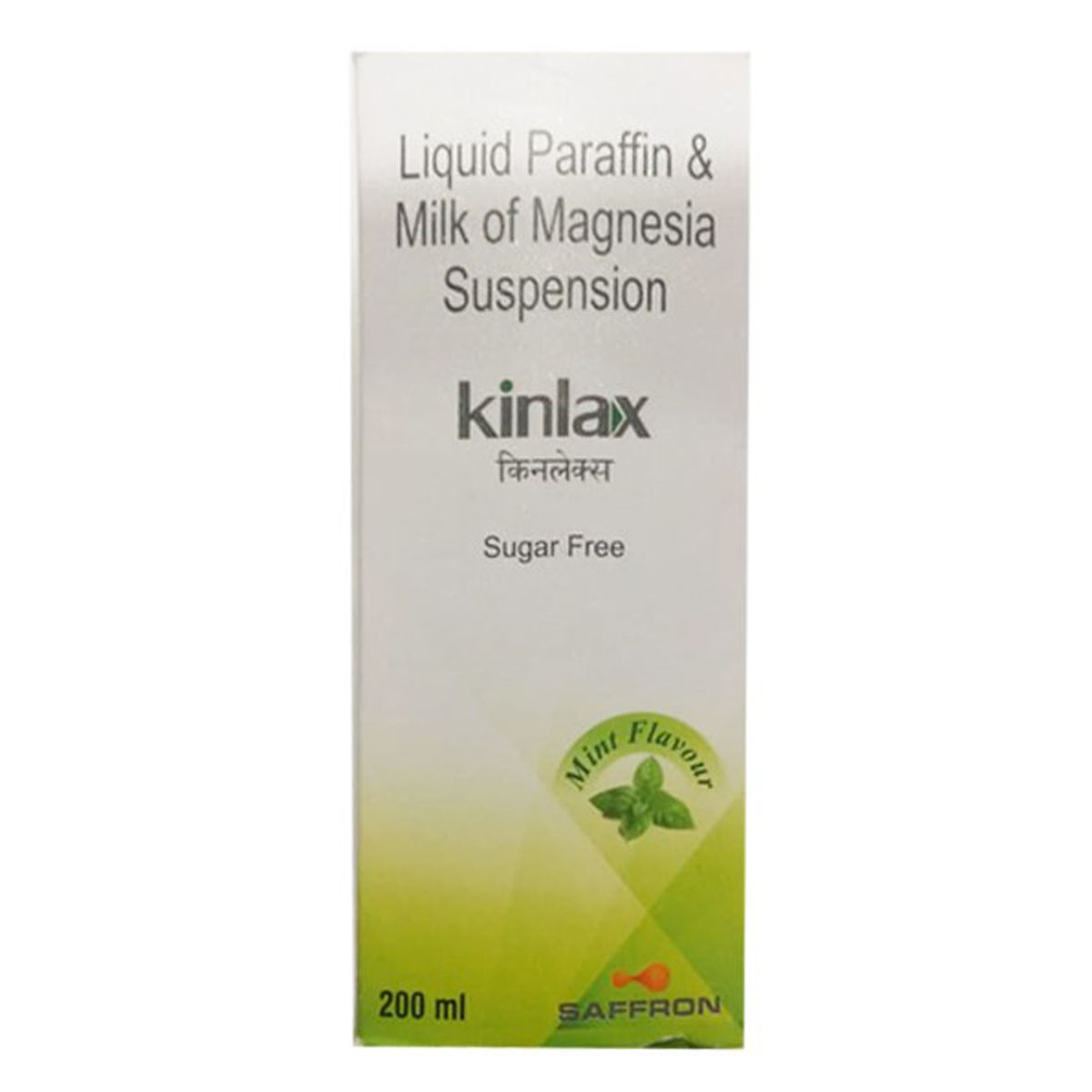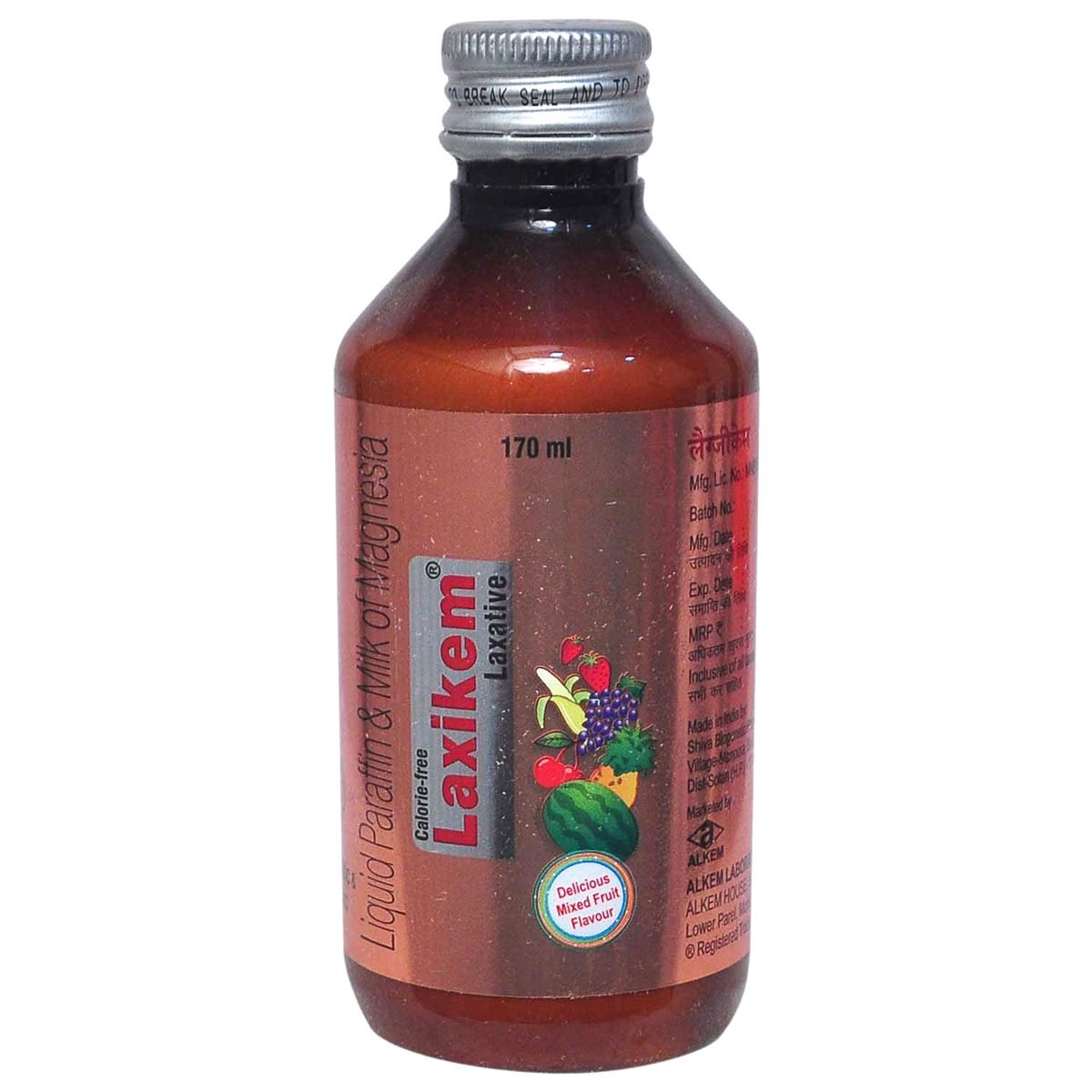Milk Of Magnesia
About Milk Of Magnesia
Milk Of Magnesia is a saline laxative indicated to treat constipation. It is also used as an antacid to relieve indigestion, heartburn, sour stomach or stomach upset. Constipation refers to infrequent bowel movements in which the stools are often dry, painful and hard to pass.
Milk Of Magnesia contains Milk of magnesia, which helps treat constipation by causing the water to be retained in the stools. This increases the number of bowel movements, softens the stools and makes it easier to pass. It reduces stomach acid, thereby it helps treat heartburn, indigestion, and stomach upset.
In some cases, Milk Of Magnesia may cause side effects, such as diarrhea, stomach cramps and decreased sense of taste. Most of these side effects may not require medical attention and resolve gradually over time. However, you are advised to talk to the doctor if the side effects persist or worsen.
Let the doctor know if you are allergic to any of the components in Milk Of Magnesia. Consult the doctor if you are pregnant, think you may be pregnant or breastfeeding. Avoid taking Milk Of Magnesia for more than a week without talking to the doctor. Keep the doctor informed about your health condition and medications to rule out any side effects/interactions.
Uses of Milk Of Magnesia
Medicinal Benefits
Milk Of Magnesia belongs to the group of medicines called saline laxatives used to treat constipation. It is also used as an antacid to relieve indigestion, heartburn, sour stomach or stomach upset. Milk Of Magnesia contains Milk of magnesia, which helps treat constipation by causing the water to be retained in the stools. This increases the number of bowel movements, softens the stools and makes it easier to pass. It reduces stomach acid, thereby it helps treat heartburn, indigestion, and stomach upset.
Directions for Use
Storage
Side Effects of Milk Of Magnesia
- Stomach cramps
- Diarrhoea
- Decreased sense of taste
Drug Warnings
Do not take Milk Of Magnesia if you are allergic to any of its components. Talk to the doctor if you have severe nausea, vomiting, or diarrhoea, no bowel movement after using the medicine as a laxative, rectal bleeding, or worsening symptoms. If you have liver or kidney disease, change in bowel habits that lasts longer than 2 weeks, appendicitis or magnesium-restricted diet. Do not take Milk Of Magnesia for more than a week without talking to the doctor. Consult the doctor if you are pregnant or breastfeeding. Milk Of Magnesia should be given to children only if advised by the doctor.
Drug Interactions
Drug-Drug Interactions: No interactions found/established.
Drug-Food Interactions: No interactions found/established.
Drug-Disease Interactions: No interactions found/established.
Drug-Drug Interactions Checker List:
Safety Advice

Alcohol
consult your doctorIt is not known if alcohol interacts with Milk Of Magnesia. Please consult the doctor.

Pregnancy
consult your doctorPlease consult the doctor if you are pregnant or think you may be pregnant before taking Milk Of Magnesia.

Breast Feeding
consult your doctorPlease consult the doctor if you are breastfeeding before taking Milk Of Magnesia.

Driving
consult your doctorIt is unknown if Milk Of Magnesia affects your ability to drive. Drive or operate machinery only if you are alert.

Liver
consult your doctorPlease consult the doctor if you have liver impairment/liver disease before taking Milk Of Magnesia.

Kidney
consult your doctorPlease consult the doctor if you have kidney impairment/kidney disease before taking Milk Of Magnesia.

Children
consult your doctorPlease consult the doctor if you have any concerns regarding the usage of Milk Of Magnesia in children.
Habit Forming
Diet & Lifestyle Advise
Constipation:
- Try maintaining a balanced diet that includes fresh fruits and vegetables.
- Stay hydrated, and drink enough water and fluids.
- Exercise regularly, and stay fit.
- Get enough sleep.
- Try making time to empty your bowels whenever the body tells you to.
- Eat food rich in fibre, such as whole-wheat bread, oatmeal, flaxseed, nuts, beans, lentils, fruits (berries, apples, oranges, bananas, pears, figs) and vegetables (broccoli, spinach, sweet potatoes, avocados).
Acidity:
- Eat smaller meals more often.
- Avoid smoking and alcohol consumption.
- Alcohol intake leads to increased production of stomach acid, thereby increasing acidity and heartburn.
- Maintain a healthy weight by regular exercising. Avoid lying down after eating to prevent acid reflux.
- Avoid tight-fitting clothes as it might increase the pressure on the abdomen, leading to acid reflux.
- Practise relaxation techniques and avoid stress by doing yoga or meditation.
- Avoid foods such as high-fat food, spicy food, chocolates, citrus fruits, pineapple, tomato, onion, garlic, tea and soda.
- Avoid sitting continuously, as it may trigger acidity. Take a 5-minute break every hour by doing brisk walking or stretching.
Patients Concern
Disease/Condition Glossary
Constipation: It refers to infrequent bowel movements. The stools are often dry, painful and hard to pass. Constipation is a condition in which the person has fewer than three bowel movements in a week. However, bowel patterns may vary from person to person. Symptoms include bloating, abdominal pain, and feeling as if the bowel movement is incomplete. Constipation occurs when the normal muscle contractions in the large intestine slow down, which causes the incomplete elimination of the bowel from the body. Constipation could be associated with a sudden change of diet, a diet with less fibre, not drinking enough liquids, lack of exercise, loss of tone of the bowel muscles in older people, or having to stay in bed for a longer duration.
Acidity: The stomach is usually protected from the acid by a mucous layer. In some cases, due to excess acid production, the mucous layer gets eroded, which leads to complications like acidity. Due to this, acid frequently flows back into the food pipe (oesophagus). This backflow (acid reflux) irritates the food pipe and causes heartburn. Symptoms include heartburn, sour or bitter taste in the mouth, and difficulty swallowing.
FAQs
Milk Of Magnesia belongs to the group of medicines called saline laxatives indicated to treat constipation. It is also used as an antacid to relieve indigestion, heartburn, sour stomach or stomach upset.
Milk Of Magnesia helps treat constipation by causing the water to be retained in the stools. This increases the number of bowel movements, softens the stools and makes it easier to pass. It reduces stomach acid, thereby it helps treat heartburn, indigestion, and stomach upset.
Do not take Milk Of Magnesia for more than a week without talking to the doctor. Consult the doctor if your condition persists or worsens.
Do not take Milk Of Magnesia within 2 hours (before or after) of taking other medicines. Talk to the doctor if you have any concerns.










